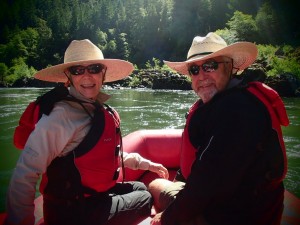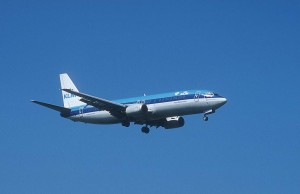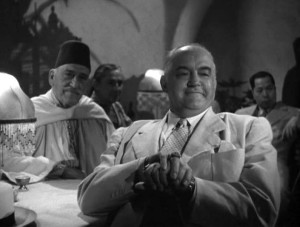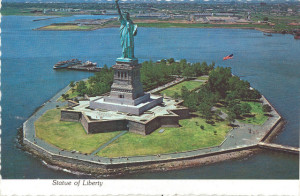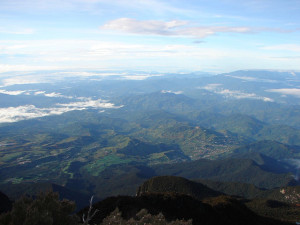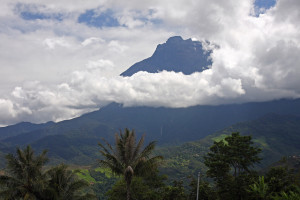Travel Behavior
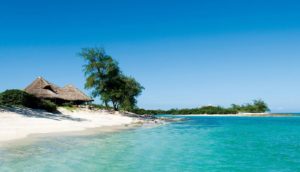
If you spin the globe near the Equator, you might end up here. Photo from andBeyond Vamizi.
I’m not very good at remembering all the special commemorative days and sometimes obscure holidays that I should.
For example, I forgot National Grandparents Day this year, even though I had written about it last year — and, even worse, it was my first Grandparents Day as an actual grandparent. It was only when a relative wished me a Happy Grandparents Day that the light went on in my head.
The United Nations first declared World Tourism Day in 1980 to highlight the social, economic, cultural and political benefits of tourism, which now accounts for about 10 percent of the global economy — the largest single industry in the world.
Airlines, cruise lines, rail lines, bus lines, rental car agencies…hotels, motels, B&Bs, resorts, inns…restaurants, cafes, street vendors…tour companies, guides, travel agents, guidebook… Continue reading
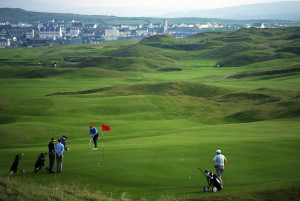
The green links of a golf course in County Clare, Ireland. “Golf” has not caught on as a girl’s name, though Ireland has. Photo by Dennis Cox/WorldViews.
Being a new grandfather, not an uncommon thing these days for baby boomers, I’ve been particularly interested in the baby-naming habits of new parents: Specifically whether or not they’re naming babies after places they’ve traveled.
My wife Catharine’s and my own travels played a role in naming our son, Grael. The connection is a bit tangential, but here it is: We had played with the idea of naming him ‘Grayle” — after one of my best friends from college — but didn’t care much for that spelling.
Then one day as the birth neared we were driving around Northern California when we came upon a sign for the village of Graeagle, and a light bulb went off simultaneously in both our minds:… Continue reading
I don’t usually use the word “seniors” when I’m referring to baby boomers — “seniors” somehow always seem older than us — but there’s a very insightful piece written by Anita Mendiratta of the CNN Task Force promoting the world’s seniors (those aged 60 and up) as “global tourism’s silver lining.”
Mendiratta praises senior travelers as “one of the most strategically valuable, yet socially undervalued, segments of the global travel population.”
The piece, which was syndicated by e Turbo News, touches a lot of bases that I’ve blogged about over the past 2 1/2 years, and has added a few new wrinkles (if you’ll excuse the expression) as well.
Her key premise is that older travelers should not be forgotten as the tourism industry actively courts millennials and other younger age groups. “To the traveling… Continue reading
In our last post, we posed ten questions that might affect your health and well-being as a traveler. Here are the answers:
1. The direction in which you fly may influence the severity of your jet lag. Other conditions being equal, which direction is most likely to produce bad jet lag?
Answer: B, West to east. When flying west to east, especially across America, you’re more likely to encounter darkness when you arrive, which helps disrupt the body’s “inner clock” (jet lag is caused by disorientation by crossing time zones, which exposure to light seems to ameliorate). Assuming no time zones are crossed, there’s technically no jet lag at all flying north-south or south-north, though you can still feel the ill effects of a long flight.
2. One good way to counter the effects of jet lag is to:
Answer: D… Continue reading
I confess: I’ve dined on KFC in Nairobi, Big Macs in China, and A&W in Kuala Lumpur.
I’ve watched Bob Newhart reruns in Zimbabwe, ordered bacon and eggs in Mumbai, and visited the Holiday Inn in Swaziland.
There are times when seeing a familiar face — even Colonel Sanders — has proved reassuring while traveling in distant lands.
But usually not.
When I go abroad, in fact, I’m almost always drawn to the remote, the exotic, the unfamiliar, the unpredictable. Give me the jungles of the Amazon to the shores of Waikiki, the tea houses of Hong Kong to the salons of London, the ends of the earth to the easily accessible hubs.
When it comes to travel, I’m a hopeless Romantic, spurred by images on old postage stamps and scenes from Sydney Greenstreet and Peter Lorre movies.… Continue reading
False memories are an odd thing — they can seem as real, or more real, than things you’ve actually done.
I was reminded of this in doing research for my Fourth of July Independence Day Travel Trivia Quiz.
It seems that Thomas Jefferson was convinced later in his life that on July 4, 1776, an elaborate mass signing ceremony of his Declaration of Independence took place in Philadelphia. The Second Continental Congress did adopt the document that day, declaring U.S. independence from Britain.
Except the signing ceremony never happened as he remembered it. Most delegates didn’t sign the document until August 2, nearly a month later.
I’ve always prided myself on my memory, especially where travel is concerned. For instance, I can tell you that when I was ten years… Continue reading
In our last post, we looked at the case of the ten foreign tourists who climbed Mount Kinabalu in Sabah, Malaysia, on the island of Borneo, and angered the locals by stripping naked when they reached the summit. One of them posted photos to his Facebook page.
The local people believe that the mountain spirits caused a fatal earthquake a few days later to show their displeasure with the act.
Four of the ten were caught, jailed for three days, paid U.S. $1,300 fines and were deported back to their home countries.
I argued that as guests in other countries, foreign tourists should respect local customs (as long as they aren’t destructive) no matter how superstitious, backward, or unnecessarily draconian they may seem to visitors.
Just Youthful High Jinks?
Some other writers have argued that the… Continue reading
You may have heard the story: Ten foreign tourists — a group of Canadians and Europeans — climbed Mount Kinabalu in Sabah, East Malaysia (on the island of Borneo), on May 30 and celebrated by stripping naked at the summit.
At 13,400 feet, Kinabalu is the highest peak between the Himalayas and New Guinea. The region is also a World Heritage Site and considered sacred by the local people, known as the Kadazan Dusun.
By coincidence, bad timing, or otherwise, the Kinabalu area suffered a destructive 5.9 earthquake on June 5, killing 18 people — mostly youngsters on a hiking trip.
Angering the Mountain Spirits
The local people in Sabah do not consider it coincidence. They believe the nudity (and urination that was also reported) angered the mountain and nearby forest spirits and prompted the… Continue reading

